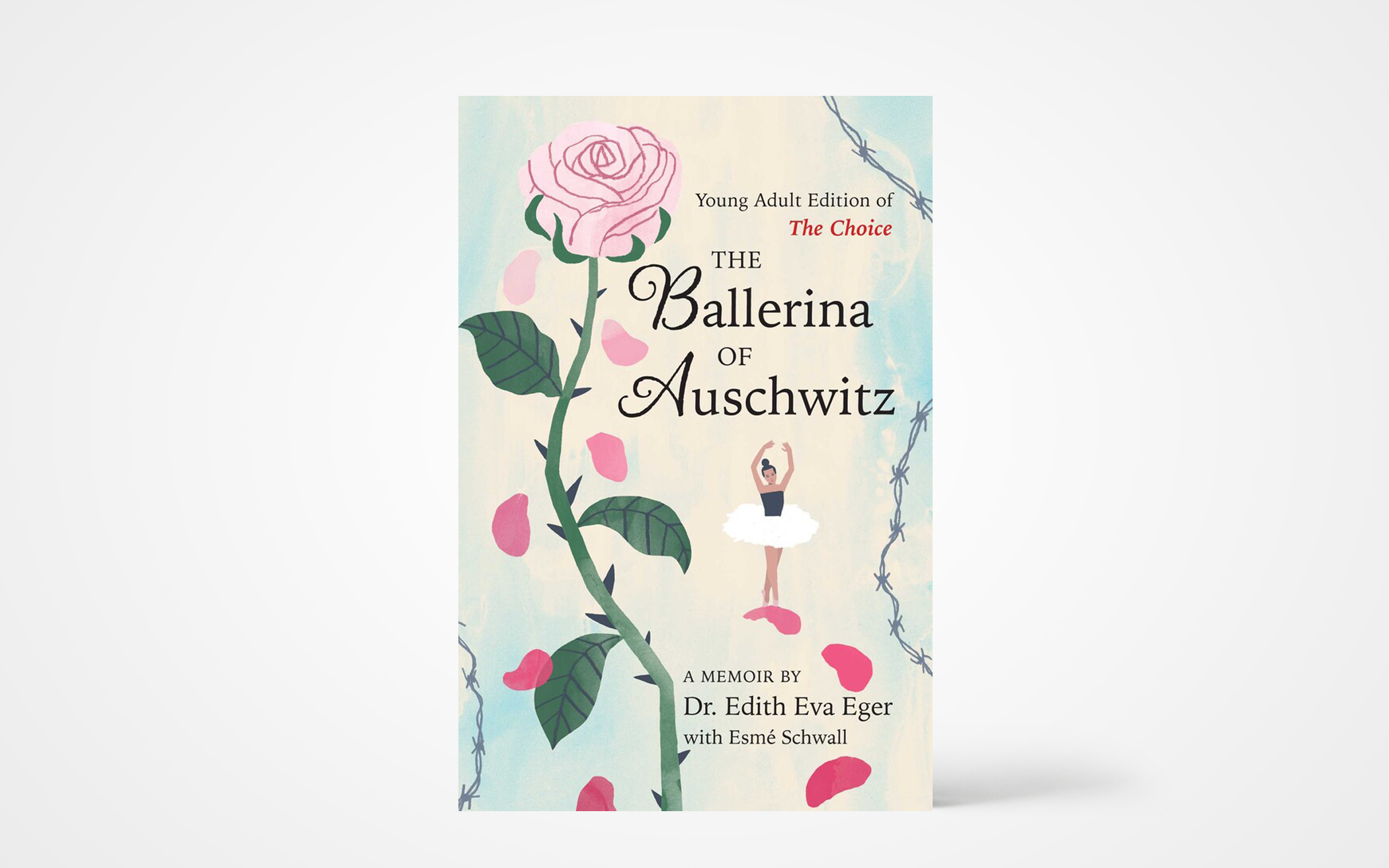In her introduction to the young adult edition of her memoir, The Choice, Dr. Edith Eva Eger writes, “I have been writing this book for nearly eighty years. When I was sixteen, enduring firsthand the horrors of the Holocaust; as I witnessed my children—and then my grandchildren and great-grandchildren—come of age; as I taught high school students and became a psychologist specializing in treating trauma ... I was already writing to you in my mind. I was longing to share with you the tools that helped me survive the unthinkable, longing for you to know that a story of humans’ capacity for evil is also a story of our inexorable capacity for hope.”
Edith was born in 1927 into an ethnic Hungarian, Jewish family living in Czechoslovakia. When the Nazis rounded up the Jews in Edith’s hometown, she, her sister Magda, and their parents were sent to Auschwitz, a death camp in Poland. The family was separated at the command of Dr. Josef Mengele, who was known as the Angel of Death. Only Magda and Edith remained together.
Later, when Mengele, “a refined killer and a lover of the arts,” learned that Edith was a gifted ballerina, he forced her to dance for him, even as she heard him talk with an officer about which girl he would kill next. Edith knew that one wrong move as she was “dancing in hell” could mean her death. Spared by the tyrant and tossed a loaf of bread, Edith survived among the first of what became countless brushes with humiliation and death.
Edith and Magda clung to each other, each doing what she could to protect the other. Edith found courage by going inward and remembering the advice of her ballet coach and her parents, words that carried significantly more weight as she struggled to survive each day. Her coach had said, “All your ecstasy in life is going to come from the inside.” Her father, aware of political developments, had told her, “There’s a war raging. The threat of death is all around. It’s tempting to give up. ... I beg you, when things take a bad turn ... choose life.” And her mother had said, “We don’t know what’s going to happen. Just remember, no one can take away from you what you’ve put in your mind.”
The Ballerina of Auschwitz is not an easy book to read, but it’s an essential one to help young people understand the impact of racial and ethnic discrimination in the past and the ongoing presence of similar destructive attitudes and forces in today’s world.
(Atheneum Books for Young Readers)
About the Author
Sonya VanderVeen Feddema is a freelance writer and a member of Covenant CRC in St. Catharines, Ontario.

